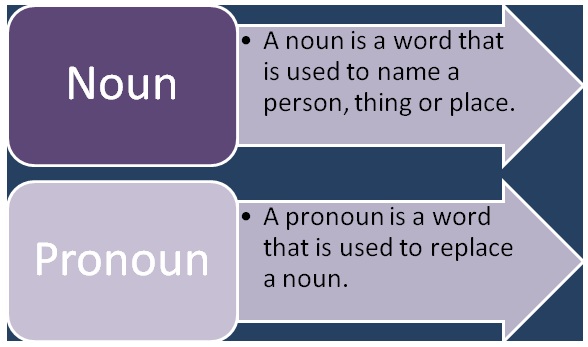Noun vs Pronoun
Nouns and pronouns are both important components of English grammar and understanding the differences between them is crucial for mastering the language. They are two of the eight parts of speech and their differences can be seen in their usage. A noun is a word that represents a person, place, or thing, while a pronoun is used as a substitute for a noun. In this article, we will explore the details of nouns and pronouns and their differences.
What is a Noun?
A noun, as defined by the Oxford Dictionary, is “A word (other than a pronoun) used to identify any of a class of people, places, or things (common noun), or to name a particular one of these (proper noun).” In simpler terms, a noun is a word used to name a person, place, or thing. Nouns have three cases: nominative, objective, and possessive. Nominative case deals with the subject, while objective or accusative case deals with the object. Nouns appear the same in both nominative and objective cases.
Nouns can be divided into various kinds, such as proper nouns, count nouns, non-count nouns, collective nouns, plural nouns, and compound nouns. Examples include New York (proper noun), table (count noun), herd (collective noun), scissors (plural noun), and blackboard (compound noun).
What is a Pronoun?
The Oxford Dictionary defines a pronoun as “A word that can function as a noun phrase used by itself and that refers either to the participants in the discourse (e.g. I, you) or to someone or something mentioned elsewhere in the discourse (e.g. she, it, this).” In simpler terms, a pronoun is a word that can be used as a substitute for a noun. There are different types of pronouns, such as personal pronouns, interrogative pronouns, relative pronouns, and indefinite pronouns. Personal pronouns are the most commonly used and include words like I, we, you, and they.
Pronouns appear different when used in nominative and objective cases. For example, the personal pronoun “I” changes to “me” when used in the objective case. Pronouns can also be divided into categories such as demonstrative pronouns, relative pronouns, interrogative pronouns, reflexive pronouns, reciprocal pronouns, and indefinite pronouns. Examples include this and that (demonstrative pronouns), who (relative pronoun), which (interrogative pronoun), myself (reflexive pronoun), each other (reciprocal pronoun), and anyone (indefinite pronoun).
What is the difference between Noun and Pronoun?
Although nouns and pronouns may seem similar, they are actually two distinct terms used for different purposes. The main difference between them lies in their usage.
Key Takeaways
- A noun is a word used to name a person, thing, or place, while a pronoun is a word used to replace a noun.
- Nouns do not change their form when used in objective and nominative cases, while pronouns do change their form depending on the case.
- Both nouns and pronouns can be divided into different categories, such as proper nouns, count nouns, and collective nouns for nouns, and demonstrative pronouns, relative pronouns, and interrogative pronouns for pronouns.
